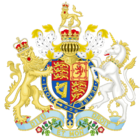Public Health (Ireland) Act 1878 facts for kids
| Act of Parliament | |
 |
|
| Long title | An Act to consolidate and amend the Acts relating to Public Health in Ireland. |
|---|---|
| Citation | 41 & 42 Vict. c. 52 |
| Territorial extent | Ireland |
| Dates | |
| Royal assent | 8 August 1878 |
| Other legislation | |
| Relates to | The Public Health Act 1875 |
| Status | |
| Republic of Ireland | Partially repealed |
| Northern Ireland | Partially repealed |
| Text of statute as originally enacted | |
The Public Health (Ireland) Act 1878 was an important law passed by the Parliament of the United Kingdom in 1878. This law aimed to improve public health and living conditions across Ireland. It brought together and updated many rules about keeping places clean and healthy.
Before this Act, different areas had their own rules, or sometimes no rules at all. This made it hard to fight diseases and ensure everyone had access to basic health services. The 1878 Act created a single, clear set of rules for the whole country.
Contents
What is a Public Health Act?
A Public Health Act is a special law that helps keep people healthy. It sets rules for things like clean water, waste disposal, and preventing the spread of diseases. These laws are super important for a healthy society.
Why Was This Act Needed?
In the 1800s, many towns and cities were growing fast. But they often lacked proper sanitation. This means there were no good systems for clean water or getting rid of rubbish and sewage.
Dirty conditions led to many serious illnesses. Diseases like cholera, typhoid, and smallpox spread easily. These outbreaks caused a lot of suffering and many deaths. People realized that better laws were needed to protect everyone.
Life Before the Act
Before the 1878 Act, public health in Ireland was a big challenge. Many people lived in crowded homes. Clean water was often hard to find. Waste was not managed well, leading to dirty streets and rivers.
These poor conditions made it easy for germs to spread. Local authorities tried to help, but they often didn't have enough power or clear guidelines. The new Act aimed to fix these problems.
What Did the Act Do?
The Public Health (Ireland) Act 1878 was a big step forward. It gave local authorities more power. They could now create and enforce rules to improve public health.
Key Changes from the Act
The Act covered many important areas. It made sure that towns and cities had better systems for daily life. Here are some of the main things it did:
- Clean Water Supply: It pushed for cleaner and safer drinking water. This was vital to stop waterborne diseases.
- Waste Management: It set rules for getting rid of sewage and rubbish properly. This helped keep streets and homes cleaner.
- Disease Control: It gave powers to deal with outbreaks of infectious diseases. This included isolating sick people and cleaning infected areas.
- Housing Standards: It encouraged better living conditions in homes. This meant making sure houses were not too crowded or dirty.
- Public Spaces: It also looked at the cleanliness of public places. This included markets and other areas where people gathered.
Who Was Responsible?
The Act put the responsibility on local authorities. These were groups like town councils or special health boards. They had to make sure the new rules were followed in their areas.
They could hire health officers and inspectors. These people would check on homes and businesses. They made sure everyone was following the new health standards.
Impact and Legacy
The Public Health (Ireland) Act 1878 was a very important law. It laid the foundation for modern public health in Ireland. It helped to create healthier and safer communities.
While some parts of the Act have been changed or replaced over time, its main ideas are still important today. It showed that the government had a role in protecting everyone's health. This Act helped to improve the lives of many people in Ireland.
See also
- Public Health Act
- Irish Poor Law
 | William Lucy |
 | Charles Hayes |
 | Cleveland Robinson |

